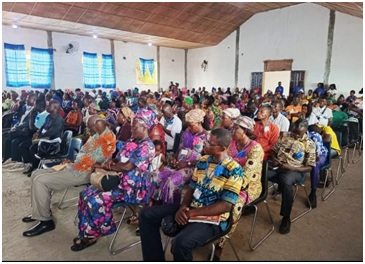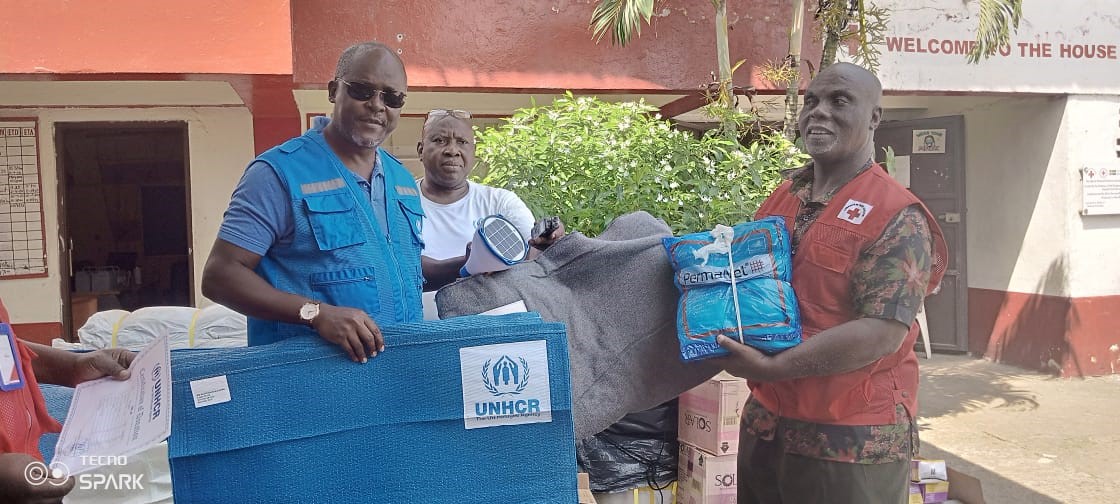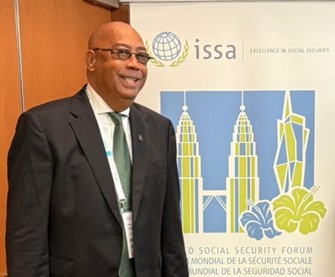The success of Liberia’s post-war economic recovery cannot be discussed without heralding the contributions of one of its committed investors in the mining industry, ArcelorMittal Liberia.
Coming out of the civil war in 2003, the economic future of one of Africa’s most promising nations was gloomy due to uncertainties around its emergence from a bloody civil war. Donors were experiencing fatigue and investors were reluctant to risk their financial resources, not sure if the war was truly over. With confidence in the future of the country, ArcelorMittal, as it is known today, stepped forward and announced what is still the biggest post-war foreign direct investment and gave a major boost to the nation’s recovery programs.
Remnants of a once booming iron ore mining sector were in ruins…destroyed and looted railway and derelict port infrastructures, dilapidated housing units, and damaged power installations were among non-functional facilities that ArcelorMittal inherited.
Fast forward to a little over a decade, key infrastructures like the rail and port have been restored and several improvements achieved in areas like housing, healthcare, and schools.
As ArcelorMittal Liberia advances into Phase II of its operations and as the process to ratify its amended Mineral Development Agreement (MDA) with Liberia continues, it is important that proper stock is taken, lest the contributions of this true partner to Liberia are forgotten.
In recent times, some politicians and some citizens have accused AML of “doing nothing” to impact communities within which it operates, calling on the National Legislature not to ratify the $800 million extended agreement put forward. But is that really the case?
In an interview this week, ArcelorMittal Liberia’s interim Chief Executive Officer, Mahamar Haidara, outlined some major contributions the company has made since it entered the Liberian iron ore industry.
Haidara emphasized that ArcelorMittal was the first large business to sign a major Mineral Development Agreement (MDA) with the Liberian government, thus dispelling fears that the country was unsafe for investment and subsequently motivating investors to come to the country to revamp Liberia’s economy.
Talking about key iron ore mining infrastructures where Liberia lost all during the 14-year civil war period, the Interim CEO indicated, “AML has already invested $1.7 billion, of which approximately $500 million has been spent for rehabilitation of the rail and port facilities to get them fully operational. ArcelorMittal plans to further invest an additional $800 million for completion of an expansion of which $250–$300 million is to upgrade these infrastructures.”

As a company whose value is built on the belief of investing in people, Haidara spoke about the US$7 million revamping of the Vocation Training Center (VTC) in Yekepa, which is providing transformational technical skills and career opportunities to Liberian youth.
With its top-notch training facilities and qualified faculty, the VTC, now known as the ArcelorMittal Training Academy, offers three-year diploma programs in Machining and Fitting, Electrical and Mechanical disciplines.
Interim CEO Haidara said going beyond its legal obligations, ArcelorMittal has provided US$40 million for the reconstruction and pavement of the Ganta-Yekepa Highway—a stretch of road that has been in a deplorable state, especially during the rainy season.

The road is currently being paved with asphalt with the construction of several huge bridges over streams and creeks, a condition that created impediments to commuters and communities along the road.
From the economic standpoint, the Interim CEO said that AML can be credited for reopening the Liberian iron ore mining sector after almost two decades of dormancy and now the company provides the single largest export contribution of about 15% of Liberia’s GDP annually.
“AML payments from royalties, taxes and other payments to GOL in recent years are approximately $30—$35 million. Overall, AML has so far contributed $300 million to GOL towards royalty, direct & indirect taxes and other payments,” said CEO Haidara.
The interim CEO pointed out that AML and its contractors have provided at least 3,000 good-paying jobs in Liberia, contributed on an average of about $100 million annually to various suppliers, $3 million per annum for community development fund with $42 million paid in total towards community development, and it provides $200,000 annually for an advanced scholarship program for Liberian students, from which 48 students have benefited.
A truly committed partner to Liberia, Haidara said as companies, non-governmental institutions and other businesses were fleeing from Liberia during the Ebola crisis in 2014, ArcelorMittal was the only major company in the extractive industry that did not abandon the country, a time when iron ore prices dropped to a non-profitable rate.
He explained that, despite the drop in iron ore price, the country did not worsen on top of its health crisis due to the presence of ArcelorMittal. The company, regardless of losses it sustained, continued operations in Liberia.
On the $800 million expansion deal that is before the Senate for ratification, the Interim CEO said the expansion will generate huge benefits for Liberia while clarifying that the expansion will in no way prohibit others from using the rail infrastructure as they can do so beginning in 2025.
With ArcelorMittal’s concentration on “decarbonization” for its steelmaking, the Interim CEO said the superior Liberia concentrate product in the future will be the appropriate ore for steelmaking.
The $800 million expansion, when approved, will be the largest Foreign Direct Investment (FDI) in the George Weah Administration, which will create 2,000 new jobs for Liberians during the construction phase of the concentrator, beginning in 2022, and 1,200 permanent new skilled jobs after commissioning of the concentrator in 2023.







